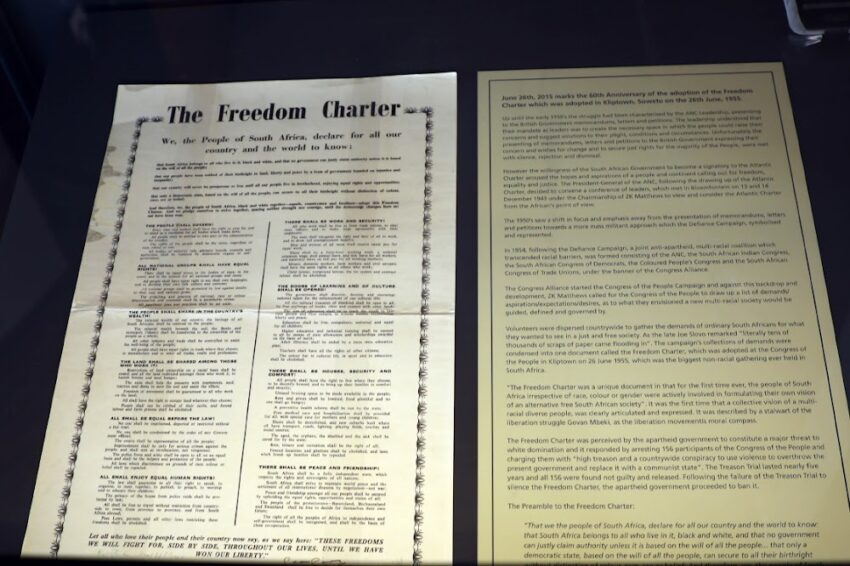On June 26, SA marked 70 years since the adoption of the Freedom Charter in 1955 by the Congress of the People.
On that day, brave patriots assembled in a multiracial convention in Kliptown and adopted a document that remains the cornerstone to the founding of our constitution and democracy.
To this day, the Freedom Charter remains a concrete expression of the will and determination of the people. The values and core principles of the Freedom Charter have been incorporated into the constitution which guides the National Development Plan, the blueprint for a society where all can flourish.
The constitution also informs the implementation of the medium-term development plan 2024-2029, which seeks to advance an all-inclusive democracy, where all have equal opportunities to a better life.
This year’s anniversary was held under the theme “70 Years of the Freedom Charter: Youth Upholding the Constitution” and coincided with the commemoration of youth month. The theme reinforces the importance of the youth in taking the lead in addressing pressing challenges facing our country and ensuring that our constitutional democracy lives up to the principles as espoused in the Freedom Charter. Together we must ensure that we live by its values as we work for a better life for all our people.
The 70th anniversary of the Freedom Charter is an opportunity to celebrate the strides we have made in building our democracy based on the constitution. Since 1994, we have worked to undo the many evils of the past. Over the years, parliament passed legislation to support our democracy and to ensure that all people are treated justly and fairly.
It also repealed several laws that sought to denigrate black people and replaced them with those that reflect the values of our new democratic dispensation. We should never forget that the apartheid government was systematic in their approach, passing law after law intended to restrict the freedoms and aspirations of black people.
The Population Registration Act of 1950 formalised racial classification and introduced an identity card for all people over the age of 18, specifying their racial group. The infamous Group Areas Act of 1950 decreed that only people of the same race could live side by side.
Things that we now consider normal such as marrying the love of your life were banned under the Prohibition of Mixed Marriages Act of 1949, which prohibited marriage between persons of different races.
Simple daily activities such as boarding a bus to go to the park, or the beach were banned under the Reservation of Separate Amenities Act of 1953, which reserved most public amenities for a particular race. In 1953, the Bantu Education Act was also passed, which crafted a separate and unequal system of education for African students, which aimed to limit their educational opportunities and reinforce apartheid policies.
All these laws have been replaced and today we live in a country where all are equal before the law. No one can be discriminated against because of race, culture, language, gender, sexual orientation, religion, or any other ground.
